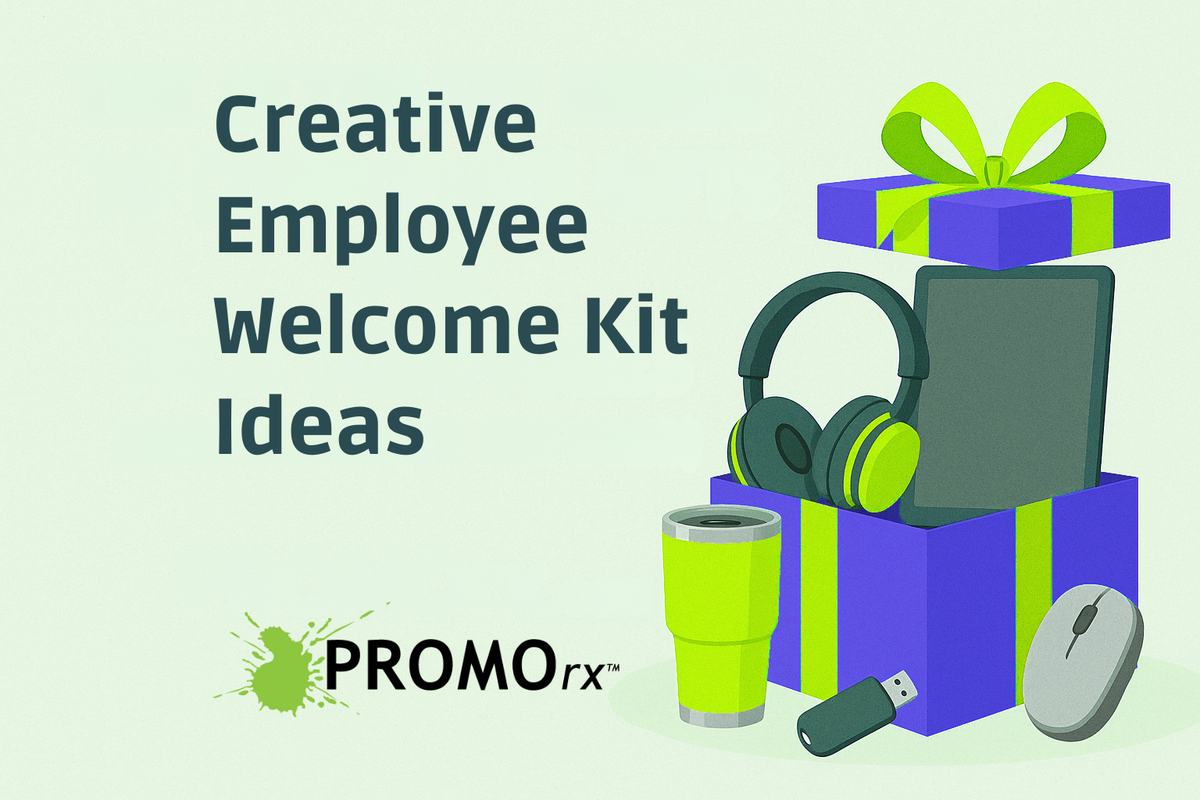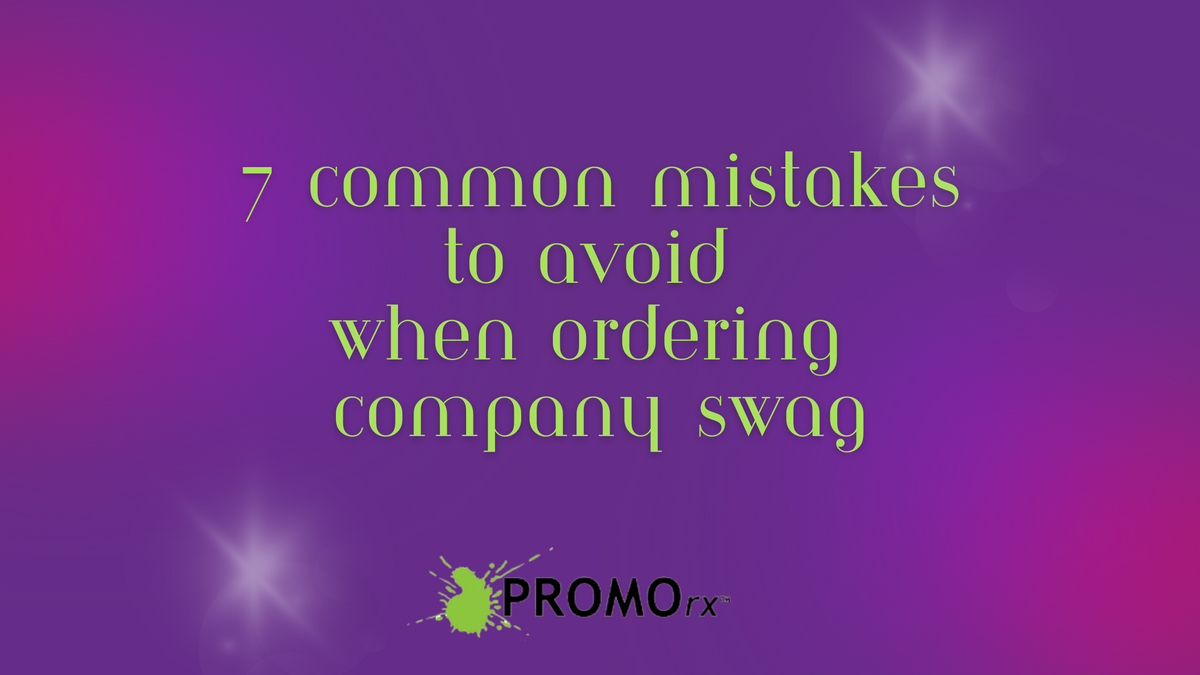RFID-Blocking Promotional Products: Do You Really Need Them?

Over the last several decades, we’ve seen some amazing technological advances across the promotional products industry, which is great, especially if you love tech gadgets as much as we do. However, with these advances come security threats, with hackers figuring out ways to steal just about anything you can think of when it comes to our identity. That’s not so amazing, but luckily there is usually a solution for these problems, giving us peace of mind when it comes to using said technology, and making decisions for which promotional product is best for that upcoming trade show giveaway.

Perhaps one very obvious example of a targeted solution to identity and credit card theft is the onslaught of RFID-blocking products that have been pouring into the market over the last several years. The promotional products industry is no exception. You’ll find that PROMOrx offers RFID-Blocking Leather Wallets , RFID Phone Case and this Journal with RFID Pocket all with the intention of giving customers options for customized tech giveaways.
That is, until we received an email regarding RFID that made us go, “Hmmm.”
Here’s the scenario:
- Hackers find a way to trigger the industry with threats of new ways of stealing our information.
- The technology gurus (and the marketers that go along with it) find ways to harness that threat, usually at some cost to the consumer: “To stop this threat, you’ll need to buy an RFID-blocking wallet.”
- Information develops and reports are published telling us that while this is a threat, it might not be that big of a deal.
So, while everyone is trying hard to sell you RFID-blocking products, we’re left wondering: Do you really need them?
We decided to take a deeper look to see what we could find.
RFID Technology Is Used All.The.Time & It’s Not a Bad Thing
First of all, what does RFID even mean?
“An RFID system consists of a tag, which is made up of a microchip with an antenna, and an interrogator or reader with an antenna. The reader sends out electromagnetic waves. The tag antenna is tuned to receive these waves. A passive RFID tag draws power from field created by the reader and uses it to power the microchip’s circuits. The chip then modulates the waves that the tag sends back to the reader and the reader converts the new waves into digital data.”
That seems pretty harmless, right? And, when used correctly, it is harmless. In fact, you’ve probably used RFID technology yourself without even realizing it (think about the remote used to open your garage door or the E-ZPass system on toll roads). RFID technology is used by big companies, and is especially helpful when large numbers of tags need to be read quickly or if there is a large amount of data that each tag needs to hold. RFID is used by libraries, retail outlets, construction companies, airlines companies, among many more.

So, why all the fuss? Well, as we said, this technology eventually gets into the wrong hands, with hackers using it to gain access to credit card information (please note: this article is from 2012, which will help you understand how dated this idea of card skimming is) simply by pointing a credit card reader at your wallet or purse, therefore capturing the data from your credit cards (and more). Not only that, but hackers found a way to break into large facilities by scanning the information from employee badges. Those are just two examples of how RFID-skimming caused a stir within the industry, therefore pushing companies to jump on the fear bandwagon and create the RFID-blocking products. The more we read, however, the more we are left wondering if these products are even necessary or if they’re more along the lines of “just another thing to sell to the consumer.”
To RFID-Block or to Not RFID-Block: That is the Question
It’s important to keep in mind that we’re not trying to undermine the seriousness of RFID-skimming. It’s possible that hackers can utilize this technology to hack into all kinds of things, even at the consumer level (i.e. most relevant, an employee badge). However, as several reports seem to indicate, it’s a very low threat that doesn’t require all the RFID-blocking hype.
According to the Identity Theft Resource Center, a lot of credit cards don’t even have the RFID capability, so this decreases your risk of being hacked to zero. And, even if your credit card does have that chip, it usually generates single-use codes, which helps your bank quickly identify any fraudulent use. But again, this brings to the table a less than 1% chance of anything bad happening to your credit or your identity.

Another key thing to note is that the actual crime of RFID-skimming is very hard to track, therefore exact facts and figures on the crime don’t actually exist, which indicates to many that the threat isn’t even there at all. Plus, wouldn’t credit card companies actually be the ones pushing some kind of fraud protection - or even the RFID-blocking wallets - if there was a sudden increase in RFID-skimming? They absolutely would because there would be an uproar among consumers, not to mention within the industry.

So, it would appear that your credit card information is safe from most, if not all, RFID-skimming attempts because a great many of them lack the chip required for that technology to work. However, what you might not know is that all US passports issued since 2007 onwards have included an RFID chip, which is located in the front cover. This opens up the same concerns about hacking that the credit card situation does, but it would seem that, again, the chances of someone actually using the chip in your passport to steal your information is slim because there is an RFID shield built into the passports that automatically stops any form of identity stealing activity. In addition, this chip contains information that can be found on the photo page of your passport anyway, and your passport cover would have to be open for someone with any sort of RFID reader to be able to gather any information from you (again, it would only be your contact details...nothing too personal).
What to Do with That RFID-Blocking Wallet
Our conclusion? For the most part, it would seem as if there isn’t much threat of having someone steal your information through this so-called virtual pickpocketing. In fact, the rise in RFID-blocking products has caused some to call it “fear-mongering” - adding to the confusion, and in many ways, causing us to break down our guards when it comes to other, far more serious, forms of identity theft (think: skimming at gas stations). In fact, a lot of the security stuff actually falls on the retailers and whether they’re updating their card readers to utilize the most current, fraud-deterrent technology out there.
Does that mean that RFID-blocking wallets are a hoax? Well, they certainly do provide peace of mind and a sense of security, which if that’s your thing, then they are 100% worth it. And, it’s been proven that they actually do block unwanted skimming and wireless transmission of your data, if you have an RFID chip in your card (most credit cards in the U.S. don’t). But, it’s also been noted that alumunium foil will do the same thing, and in fact, may be more effective than a lot of the blocking products out there. (Hey, it’s more affordable too!) There are threats for the new chip-based cards, which are more prevalent than RFID chips in the U.S., and the ways you can help prevent those types of thefts (it boils down to staying alert!).

What do we suggest? Using relevant and pertinent information to determine what’s best for your company and target audience. If you’ll be using the RFID-blocking products as promotional gifts for employees with ID badges, then yes. However, we don’t encourage contributing to the fear-mongering by giving these products out as trade show giveaways to the general public. The RFID protection in these products works on credit cards that are extremely rare in the U.S.; therefore, you’re not really hitting your target audience anyway.
If you’re in the market for a cool tech giveaway, but still want it to be relevant and useful for prospects and clients, might we suggest this USB Data Blocker? It, too, performs in a way that blocks hackers from stealing your data (or giving your malware), but addresses a real threat versus a perceived threat. It’s a personal favorite and one we would recommend over the RFID blocking wallets as the perfect trade show giveaway.




